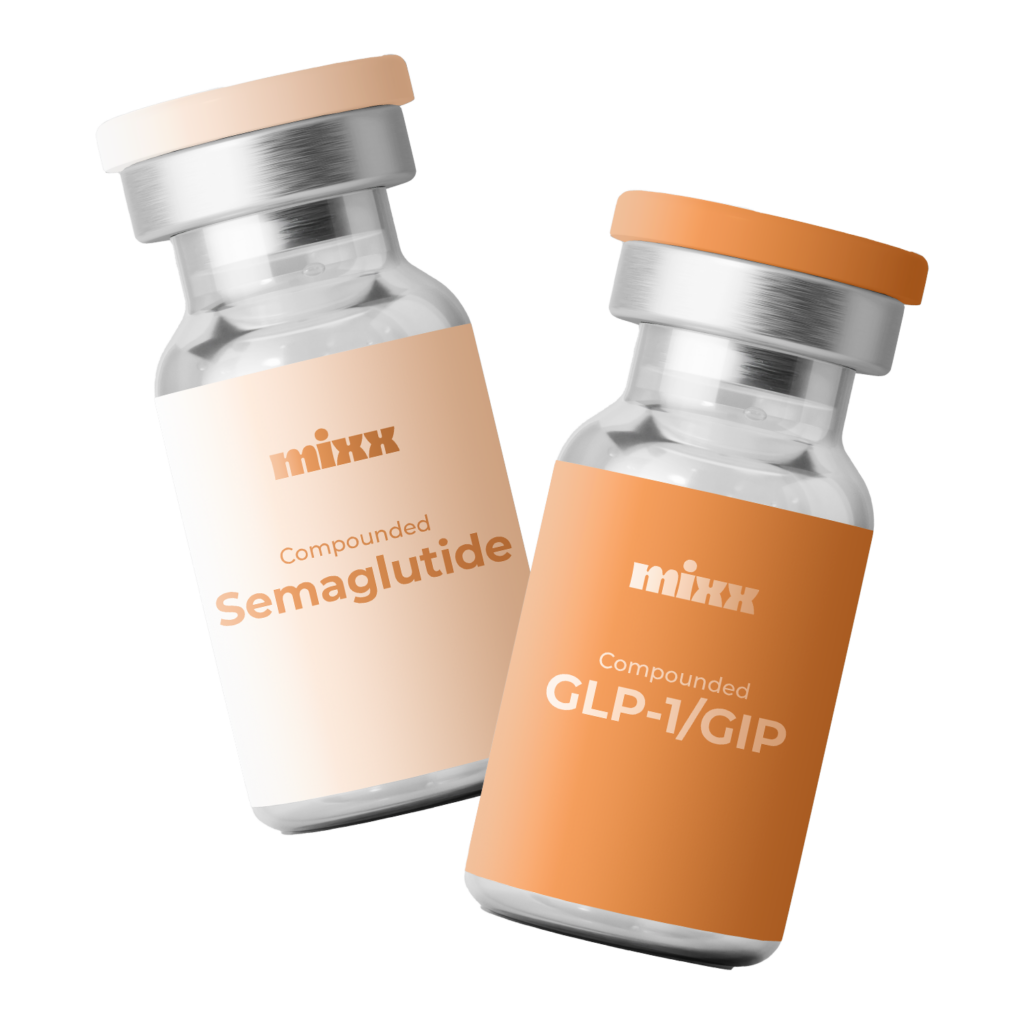Introduction to Anti-Obesity Medications
Anti-obesity medications are transforming the way chronic weight management is approached in modern healthcare. Recent FDA-approved treatments, including semaglutide (Wegovy) and tirzepatide (Zepbound), have shown remarkable results—helping individuals lose up to 20% of their body weight.
These medications are marketed under different brand names for diabetes and obesity; for example, semaglutide is sold as Ozempic for diabetes and Wegovy for weight loss, while tirzepatide is marketed as Mounjaro for diabetes and Zepbound for obesity. Zepbound and Mounjaro are developed by Eli Lilly, a leader in innovative diabetes and obesity treatments. These medications work by mimicking hormones that regulate appetite, insulin secretion, and digestion, creating a powerful weight loss effect.
Known as GLP-1 receptor agonists, these medications delay stomach emptying, suppress appetite, and help control blood sugar levels. They are most commonly administered via weekly injections, though oral versions such as Rybelsus (oral semaglutide) and investigational drugs like orforglipron are gaining attention for expanding treatment accessibility. The rapid development of new drugs in this field, including both injectables and pills, is expanding options for patients. Drug companies play a crucial role in developing and supplying these medications, but high demand has led to supply shortages in some cases.
Beyond weight loss, these medications are also approved or used off-label for type 2 diabetes and may help reduce the risk of cardiovascular disease. The popularity of weight loss drugs has grown, especially among celebrities and high-profile individuals, but it is important to use these medications under medical supervision to ensure safety and effectiveness.
At Mixx Health and Wellness, we provide convenient home injection kits and personalized plans for patients eligible for these breakthrough therapies.
Mechanism of Action
The mechanism behind GLP-1 receptor agonists is both sophisticated and effective. These drugs target the glucagon-like peptide-1 (GLP-1) receptor, a hormone receptor involved in blood sugar control, appetite regulation, and digestion. These medicines act by influencing the pancreas to regulate insulin and glucose, supporting better metabolic control.
By activating this receptor, these medications slow gastric emptying, increase feelings of fullness (satiety), and reduce food intake. They also work within the brain’s reward center, which helps reduce cravings for addictive substances such as sugar, alcohol, and nicotine.
Another emerging benefit of GLP-1 medications is their influence on the brain-gut axis. The pancreas plays a key role in the hormonal regulation targeted by these medicines, further supporting their effects on metabolism and appetite. This connection between the brain and gastrointestinal system plays a crucial role in hunger, metabolism, and emotional responses to food.
These combined effects contribute to consistent weight loss, improved insulin sensitivity, and a reduction in overall caloric intake—making GLP-1 receptor agonists a powerful tool in the fight against obesity. The safety and efficacy of these medicines have been demonstrated in clinical studies, supporting their use in weight management and diabetes care.

Clinical Trial Results
Extensive clinical trials have validated the effectiveness of GLP-1 and GIP/GLP-1 receptor agonists. For example, studies on semaglutide demonstrated an average weight loss of up to 15–22.5%, significantly surpassing other anti-obesity medications.
One of the most notable trials, the SELECT trial, randomized participants to receive either semaglutide or received placebo, showing that semaglutide reduced major adverse cardiovascular events by 20% in individuals with obesity but no diabetes—a breakthrough finding that expands its value beyond weight control.
Tirzepatide, which combines GLP-1 and glucose-dependent insulinotropic polypeptide (GIP) actions, has also shown strong efficacy for both weight loss and diabetes management. Its approval and safety are supported by two trials demonstrating significant weight loss and safety outcomes. Patients in clinical trials achieved record-breaking weight reduction while improving glycemic control.
These findings are the result of a rigorous drug evaluation process conducted by the FDA’s Center for Drug Evaluation and Research. When the FDA’s Center approved these medications, John Sharretts, director of the Division of Diabetes, Lipid Disorders, and Obesity at the FDA’s Center for Drug Evaluation and Research, emphasized the significance of these results for people living with obesity and overweight conditions.
These medications now provide a non-surgical alternative to bariatric procedures, offering a less invasive path to meaningful weight reduction and long-term health benefits.
Health Benefits
Anti-obesity drugs offer a wide range of clinical and lifestyle benefits for adults, as demonstrated in adult clinical trial populations. In addition to promoting fat loss, these medications support the following:
- Reduced blood pressure and cholesterol levels
- Improved blood sugar control, particularly in those with type 2 diabetes
- Decreased risk of heart disease and stroke
These medications are associated with a reduced risk of developing serious conditions such as cardiovascular disease and diabetes. - Enhanced exercise ability and physical mobility
Increased physical activity is an important part of a comprehensive treatment plan and can further optimize health outcomes. - Improved mental health, including reduced symptoms of depression and anxiety
Clinical studies have also shown positive cardiovascular outcomes with certain anti-obesity drugs, further supporting their role in improving heart health.
They may also play a role in preventing chronic conditions such as polycystic ovary syndrome (PCOS) and metabolic syndrome. As a result, patients often report not just physical improvements, but emotional and psychological ones too.

Safety and Side Effects
Like any prescription medication, anti-obesity drugs come with potential side effects. The most common include:
- Nausea
- Vomiting
- Diarrhea
- Constipation
These symptoms are generally mild and temporary, often resolving as the body adjusts to the medication. However, rare but serious risks may include:
- Pancreatitis
- Medullary thyroid cancer
- Gallbladder issues or kidney disease
To ensure safety, it’s crucial to work closely with health care providers. Always consult with your health care providers before starting or if you need to stop taking medications like Ozempic or Wegovy, especially if you have conditions such as retinopathy.
Abruptly stopping these medications can pose a high risk of weight regain or worsening diabetes control, so medical supervision is essential if you need to stop taking them due to side effects or other concerns. Regular monitoring of blood sugar, kidney function, and thyroid levels is often recommended during treatment.
At Mixx Health and Wellness, we provide this oversight remotely through telehealth consultations and ongoing care.
Most Common Side Effects
When considering anti-obesity medications for weight loss and weight management, it’s important to be aware of the most common side effects. Drugs like semaglutide (Wegovy) and tirzepatide (Zepbound) have been studied extensively in clinical trials, and the majority of patients experience at least one side effect—most often related to the digestive system.
The most common side effects reported include:
- Nausea
- Vomiting
- Diarrhea
- Constipation
- Abdominal pain
These symptoms are usually mild to moderate and tend to decrease as your body adjusts to the medication.
In addition to gastrointestinal symptoms, some patients may notice injection site reactions such as redness, swelling, or itching. There is also an increased risk of more serious conditions, including pancreatitis and medullary thyroid cancer. Because of these risks, anti-obesity medications are not recommended for patients with a personal or family history of medullary thyroid cancer or those who have had pancreatitis.
The long-term effects of these medications are still being studied, so regular check-ins with your healthcare provider are essential. Your provider will monitor for any potential risks and help you weigh the benefits of continued treatment.
To help minimize the most common side effects, your healthcare provider will usually start you on a low dose and gradually increase it—a process known as dose titration. This approach allows your body to adapt and can reduce the likelihood or severity of symptoms like nausea and vomiting. Maintaining a healthy diet and regular exercise routine can also support your body’s adjustment and enhance the benefits of these medications.
Ultimately, while anti-obesity medications can be highly effective for weight loss and chronic weight management, it’s important to have an open conversation with your healthcare provider about the potential risks and how to manage them.
By understanding what to expect and taking proactive steps, you can maximize the benefits of your treatment and stay on track toward your health goals.

Administration and Eligibility
Most GLP-1 and GIP/GLP-1 medications are administered through weekly injections, although newer formulations and oral options are being developed. Some medications are also available in pill form, providing an alternative to injections.
Eligibility for treatment typically requires a body mass index (BMI) of 30 or greater, or being overweight with a BMI of 27 or greater if you have excess weight-related conditions such as:
- Type 2 diabetes
- High blood pressure
- High cholesterol
Before prescribing, a provider will evaluate your medical history, current medications, and weight loss goals. Treatment usually starts with lower doses and is gradually increased to a higher dose to minimize side effects. Higher doses may be prescribed for weight loss compared to diabetes treatment, but higher doses can increase the risk of side effects.
At Mixx Health and Wellness, we simplify this process with a virtual consultation and at-home delivery of prescription weight loss injections starting at $100/month. Other medications, such as SGLT2 inhibitors or new drugs like Zepbound, are available for patients who cannot use or tolerate first-line options.
Glucagon-Like Peptide (GLP-1)
GLP-1 is a naturally occurring hormone that helps regulate glucose metabolism, insulin release, and appetite control. After eating, it’s secreted by the gut and helps:
- Stimulate insulin production
- Suppress glucagon secretion
- Reduce appetite
- Promote feelings of fullness
GLP-1 receptor agonists are synthetic versions of this hormone. They enhance the effects of natural GLP-1 and are often used in both diabetes and obesity treatment. Researchers are also investigating GLP-1’s potential to treat conditions like Alzheimer’s, fatty liver disease, and even substance addiction.
GLP-1 Receptor Agonist Overview
GLP-1 receptor agonists are a cornerstone of modern weight loss pharmacotherapy. Examples include:
- Semaglutide (Ozempic, Wegovy)
- Liraglutide (Saxenda, Victoza)
- Dulaglutide (Trulicity)
- Tirzepatide (Mounjaro, Zepbound – GLP-1/GIP dual agonist)
These medications were originally developed as diabetes drugs to treat diabetes by improving blood sugar control. Some, such as Ozempic and Mounjaro, were first approved to treat diabetes and later found to be effective for obesity and weight management.
These medications improve blood sugar control, assist in weight loss, and reduce the risk of cardiovascular events. Their long-acting formulations make them convenient and effective for chronic weight management.
Cardiovascular Health
Weight loss is only one part of the benefits provided by these drugs. Research shows GLP-1 and GIP/GLP-1 medications have direct positive effects on cardiovascular health:
- Lowering blood pressure
- Improving lipid profiles (e.g., LDL cholesterol)
- Reducing inflammation
The SELECT trial is especially significant—it demonstrated that semaglutide reduced cardiovascular events (heart attack, stroke, death) in obese individuals without diabetes.
These findings have led cardiologists to embrace GLP-1 medications not just for weight, but for heart health as well.
Diabetes Management
Anti-obesity medications like Ozempic and Mounjaro were initially developed for type 2 diabetes and remain highly effective in this area. They help:
- Enhance insulin secretion
- Suppress glucagon release
- Improve glucose uptake
- Reduce HbA1c levels
These medications can be safely combined with metformin or other antidiabetic drugs, making them versatile tools for blood sugar management.
At Mixx Health and Wellness, our providers carefully monitor blood glucose and adjust treatment as needed to ensure optimal results.

Chronic Weight Management
GLP-1 medications are intended for long-term use, especially for those who struggle with weight cycling or have difficulty maintaining weight loss through lifestyle changes alone.
With medical support, these drugs can help achieve:
- Consistent and gradual fat loss
- Sustained weight maintenance
- Reduction in visceral fat and waist circumference
Combining medication with meal planning, activity goals, and regular check-ins provides the best chance for long-term success.
Blood Pressure Management
In addition to blood sugar control and weight loss, anti-obesity medications support healthy blood pressure regulation. The mechanism includes:
- Improving vascular function
- Reducing insulin resistance
- Decreasing systemic inflammation
For individuals with hypertension and obesity, these medications may reduce the need for additional blood pressure drugs. Providers at Mixx Health and Wellness will monitor your progress and adjust treatment as needed.
Long-Term Use and Costs
Effective weight loss requires consistency, and anti-obesity medications are often used for the long haul. The cost of treatment can be a barrier, with prices ranging from $100–$1000+ per month, depending on the drug, dosage, and insurance. New diabetes drugs, such as those used for weight management, can be particularly expensive and may not be covered by all insurance plans.
At Mixx Health and Wellness, we offer affordable plans starting at $100/month for semaglutide and $235/month for GLP-1/GIP kits, with no hidden fees and free provider evaluations included. It is important to obtain these medicines through reputable providers to ensure safety and efficacy.
We also help patients explore insurance coverage or manufacturer assistance programs when applicable. Patients should avoid purchasing medicines from online ads or unregulated sources, as these may not be safe or effective.
Future Directions
The field of anti-obesity medication is evolving rapidly. Researchers are exploring:
- Combination therapies (e.g., GLP-1 + GIP + glucagon receptor agonists)
- Oral formulations for increased ease of use
- New classes of hormone mimetics
- Applications in neurodegenerative diseases, addiction, and inflammatory conditions
As understanding grows, future medications will likely be even more effective, accessible, and tailored to individual health needs.
Frequently Asked Questions
What is the name of the new drug for obesity?
The newest FDA-approved drugs for obesity include semaglutide (Wegovy) and tirzepatide (Zepbound), both shown to produce significant weight loss.
What is the latest drug for obesity?
Tirzepatide is the latest to receive FDA approval for chronic weight management and offers dual action by targeting both GLP-1 and GIP receptors.
What is the new drug target for obesity?
The most promising targets are GLP-1, GIP, and glucagon receptors. These hormones regulate appetite, metabolism, and insulin secretion.
What are the new pills for obesity?
Rybelsus (oral semaglutide) is currently available, and orforglipron, an oral GLP-1 agonist, is in late-stage clinical trials.
Conclusion
Anti-obesity medications are revolutionizing weight management by providing science-backed, non-surgical options for significant and sustainable fat loss. From improved metabolic health to reduced cardiovascular risk, GLP-1 receptor agonists like semaglutide and tirzepatide represent a new era of obesity treatment.
At Mixx Health and Wellness, we offer these breakthrough treatments in easy-to-use home injection kits, backed by expert medical support and customized care plans. With options starting at $100/month, achieving your weight loss goals has never been more accessible.
Whether you’re beginning your journey or looking for a more effective solution, we’re here to help you navigate it—with clarity, confidence, and compassion.

